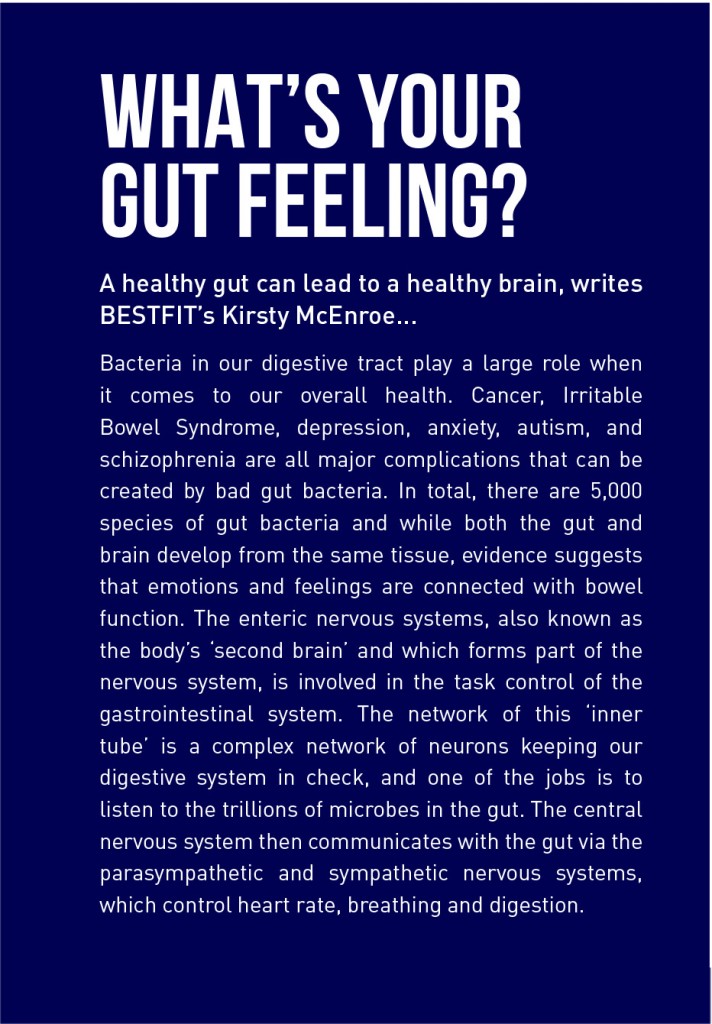BESTFIT Issue 13 – Life lessons
Share

Recent evidence indicates our brain is aware of all the gut microbes, and that these bacteria can influence our behaviour. Gut macrobiotics influence neurotransmitters serotonin ‘happy hormones’ that regulate happiness. Here are some of the ways bacteria can affect our bodies:
DEPRESSION
More than one third of sufferers have a leaky gut or damaged gut lining when toxins seep into the bloodstream.
ANXIETY
Probiotics act as an anti-depressant and can help with anxiety, or change the brain environment positively.
AUTISM
Gut problems can coincide with conditions such as irritable bowel and leaky gut.
CROHNS DISEASE
A typical immune response triggered by high levels of bacteria can be present in this disease.
ULCERATIVE COLITIS
The onset of UC may be exacerbated by an imbalance of the gut flora increasing symptoms.
IRRITABLE BOWEL SYNDROME
A build-up of bad bacteria in the gut can cause symptoms associated with IBS.
RHEUMATOID ARTHRITIS
The autoimmune joint disease is linked to low levels of ‘friendly bacteria’ and high levels of unhealthy bacteria and proved by recent studies.
COLON CANCER
The rise in colon cancer can be contributed by sugar-loving microbes in the gut, which feed off sugar and carbs.
OBESITY & DIABETES
Obesity problems have been linked to high levels of bad bacteria.
SCHIZOPHRENIA
Studies suggest gut bacteria have proven links to schizophrenia. Although not fully understood, there were proven changes in brain development of this complex disorder.
HEALTHY BACTERIA FOODS
Lactobacilli may ward off stress and anxiety, while bifid bacteria can be effective at treating many intestinal conditions. With these in mind, here are five foods that can help…
- Miso soup is made from fermented soy, which is high in good bacteria.
- Yoghurt is the best way of getting good bacteria from food.
- Sauerkraut is a fermented cabbage, which contains high levels of Lactobacilli (and which therefore gives your immune system a boost).
- Kombucha is fermented tea great for overall health and well-being.
- Kefir is a natural probiotic fermented milk product, so suitable for those
- with lactose intolerance.
Can’t stomach these? No worries, take a probiotic supplement at night before bed, available from any good health food store.
For more information, email info@incleanse.co.uk or visit www.incleanse.co.uk, www.facebook.com/incleanse















FOLLOW BESTFIT